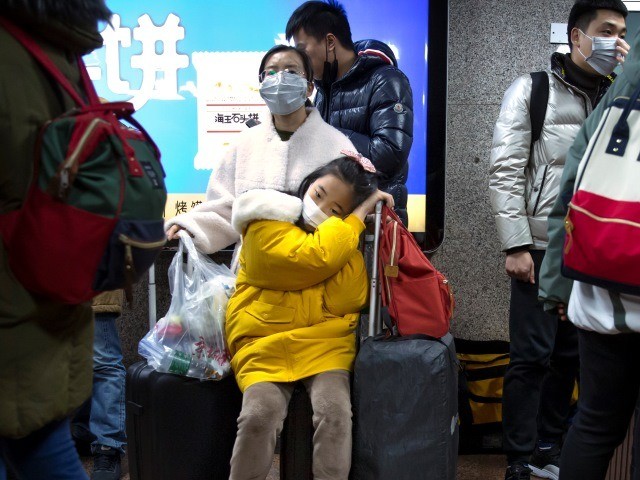Governments across Asia are increasing censorship efforts and media controls to suppress “fake news” about the Wuhan coronavirus epidemic, a problem the World Health Organization (WHO) also expressed concerns about on Tuesday.
Free speech advocates are worried about rising censorship levels in a region that already had serious problems with authoritarianism.
WHO Global Infections Hazard Preparedness director Sylvie Briand said on Tuesday that misinformation about the epidemic could spread panic and interfere with serious efforts to control the coronavirus.
“A few centuries ago, this phenomenon existed as well. But at that time there was no social media and so the information was spreading as well, but much slower than now. Now, the information is spreading very fast and is amplified immediately in every corner of the world, basically. This speed is very difficult to address in a timely manner,” Briand told Voice of America News.
“I think it is a challenge of the 21st century because we are all beneficiaries of those extremely intense and fast communications, but also we could be the victims of it,” she said, arguing that efforts to suppress false information during a fast-moving crisis are not “censorship” as the term is traditionally understood.
The big problem, as always, is defining “fake news” and setting reasonable terms for refuting it. Every censorship regime in the world, including hardcore speech control fanatics like the Communist Chinese, justifies authoritarian speech restrictions as a crusade against disinformation. “Fake news” is a concept that can be easily stretched to include political dissent and accurate information the regime disapproves of.
In the case of the Wuhan coronavirus, the Chinese government deserves much of the blame for the atmosphere of paranoia and disinformation, since it suppressed valid lifesaving information about the virus for so long, and is widely suspected of continuing to do so.
Reuters on Tuesday noted censorship crusades flaring up across Asia, with quite a few arrests:
At least 16 people have been arrested over coronavirus posts in Malaysia, India, Thailand, Indonesia and Hong Kong, while Singapore has used its controversial new “fake news” law, POFMA, to force media outlets and social media users to carry government warnings on their posts and articles saying they contain falsehoods.
“Fortunately, we now have POFMA to deal with these fake news,” said Lawrence Wong, one of the ministers heading a Singapore government task force to halt the spread of the virus.
[…]
At least five people were arrested and released on bail in India’s southwestern state of Kerala over WhatsApp messages, said Aadhithya R, District Police Chief of Thrissur. Six people were arrested in Malaysia on suspicion of spreading false news.
In Vietnam, where an army of cyber-censors tracks social media comment for the communist government, at least nine people have been fined and three celebrities asked to explain their actions over posts about coronavirus.
Thailand hailed the success of an “anti-fake news center” it set up last year. Dozens of staff reviewed nearly 7,600 posts in four days from Jan. 25 – leading to 22 posts being highlighted as false on its website and two arrests under computer crimes laws.
“The anti-fake news center is working intensively to verify these rumors and communicating truth to the people,” said Digital Minister Puttipong Punnakanta.
Taiwan and South Korea are also taking steps to block misinformation while, in the United States, Facebook has announced plans to remove posts that spread false information about the virus.
As Reuters pointed out, the first major act of coronavirus-related speech control was of course perpetrated by China, which arrested eight people for “spreading rumors” early in the outbreak but has since changed course and hailed the detainees as heroes for trying to sound an early warning about the Wuhan epidemic.
Critics of coronavirus censorship warned that not only is speech control problematic from the standpoint of human rights and individual liberty, but it can interfere with the spread of information that can help people at risk of the disease. The eight Wuhan detainees would serve as an example since some of the material they circulated was incorrect – some of them thought SARS was making a comeback – but they were essentially right that a dangerous epidemic was spreading.
The MIT Technology Review on Sunday looked at coronavirus censorship from the other direction, telling the story of Chinese citizens working to bypass government news blackouts with crowdsourced campaigns. Some of these operations overlap with networks created to support the Hong Kong protest movement, which has produced a generation of activists who know how to get around China’s notorious Internet blockades.
Participants in the project noted that Chinese censors are aggressively blocking posts that criticize or embarrass the government, whether or not the statements they make about the Wuhan virus are accurate. They also expressed healthy skepticism of the more dramatic “underground videos” of people collapsing in the streets of Wuhan.
The L.A. Times on Monday related the ordeal of a Wuhan resident named Fang Bin, an aspiring “citizen journalist” who found himself dragged off in the middle of the night by a squad of police in hazmat suits because he posted videos of corpses at public hospitals.
Fang was treated like a potential plague carrier even though he was perfectly healthy and was never interviewed by a doctor. His interrogators accused him of being a mercenary subversive paid by foreigners to make videos embarrassing to the Chinese government. At no point was the authenticity of his videos seriously challenged.

COMMENTS
Please let us know if you're having issues with commenting.